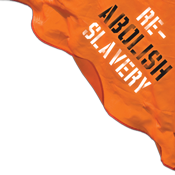“People who looked to Jesus as their political savior were constantly befuddled by his choice of companions. He became known as a friend of tax collectors, a group clearly identified with the foreign exploiters, not the exploited. Though he denounced the religious system of his day, he treated a leader like Nicodemus with respect, and though he spoke against the dangers of money and violence, he showed love and compassion to a rich young ruler and a Roman centurion.
“In short, Jesus honored the dignity of people, whether he agreed with them or not. He would not found his kingdom on race or class or other such divisions. Anyone, even a half-breed with five husbands or a thief dying on a cross was welcome to join his kingdom. The person was more important than any category or label.
“I feel strongly convicted by this quality of Jesus every time I get involved in a cause I strongly believe in. How easy it is to join the politics of polarization, to find myself shouting across the picket lines at the ‘enemy’ on the other side. How hard it is to remember that the kingdom of God calls me to love the woman who has just emerged from the abortion clinic (and, yes, even her doctor), the promiscuous person who is dying of AIDS, the wealthy landowner who is exploiting God’s creation. If I cannot show love to such people, I must question whether I have truly understood Jesus’ gospel.
“A political movement by nature draws lines, makes distinctions, pronounces judgments; in contrast, Jesus’ love cuts across lines, transcends distinctions, and dispenses grace. Regardless of the merits of a given issue–whether a pro-life lobby out of the Right or a peace-and-justice lobby out of the Left–political movements risk pulling onto themselves the mantle of power that smothers love. From Jesus I learn that, whatever activism I get involved in, it must not drive out love and humility, or otherwise I betray the kingdom of heaven.”






1) Josh »» February 3rd, 2006 @ 12:44 am
Does this mean I have to love conservatives? Damn it man; why do you always have to be the voice of reason???!!!!
Yup, even the really mean ones.
And the ones with the bad hair, even them.